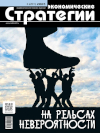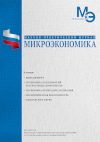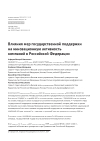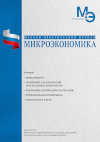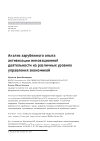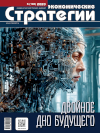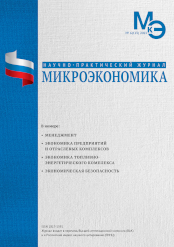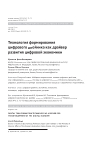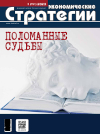Technological Sovereignty — a Tool for Providing Sustainable Development of the Country
DOI: 10.33917/es-3.201.2025.6-13
The article dwells on the role of technological sovereignty in ensuring the country’s sustainable development. The authors examine the concept of technological sovereignty, its main components and its relationship with economic, social and environmental sustainability. Particular attention is paid to analysis of the key areas for strengthening technological sovereignty, including the development of a research base, stimulation of innovation, personnel training and government support. Examples of Russia and other countries show successful practices and challenges related to achieving technological independence. It is shown that technological sovereignty is a necessary condition for sustainable development, allowing to reduce dependence on external factors and ensure the country’s long-term innovative development. In conclusion, the authors put forward recommendations for forming a comprehensive strategy for technological development based on strengthening scientific potential and creating a favourable environment for innovation.
References:
1. Razvitie ekonomicheskikh sistem: teoriya, metodologiya, praktika: Monografiya (nauchnoe izdanie) [Development of Economic Systems: Theory, Methodology, Practice: Monograph (Scientific Edition)]. FGAOU VO “Samarskiy natsional’nyy issledovatel’skiy universitet imeni akademika S.P. Koroleva, et al; pod. red. B.N. Gerasimova. Penza, PGAU, 2024, 275 p.
2. Trusina I., Ermolaeva E., Abramov V., Gopeenko V. Otsenka mirovogo razvitiya v invariantnoy sisteme koordinat energeticheskikh edinits: perspektivy novykh industrial’nykh ekonomik [Assessment of Global Development in an Invariant Coordinate System of Energy Units: Prospects for New Industrial Economies]. Zhurnal infrastruktury, politiki i razvitiya, 2024, no 8(1):3110, DOI: https://doi.org/10.24294/jipd.v8i1.3110
3. Afanas’ev A.A. Tekhnologicheskiy suverenitet kak nauchnaya kategoriya v sisteme sovremennogo znaniya [Technological Sovereignty as a Scientific Category in the System of Modern Knowledge]. Ekonomika, predprinimatel’stvo i pravo, 2022, vol. 12, no 9, pp. 2377–2394.
4. Kvint V.L., Novikova I.V., Alimuradov M.K., Sasaev N.I. Strategirovanie tekhnologicheskogo suvereniteta natsional’noy ekonomiki [Strategizing the Technological Sovereignty of the National Economy]. Upravlencheskoe konsul’tirovanie, 2022, no 9, pp. 57–67, DOI: 10.22394/1726-1139-2022-9-57-67
5. Baydarov D.Yu., Faykov D.Yu. Na puti k tekhnologicheskomu suverenitetu: teoreticheskie podkhody, praktika, predlozheniya [On the Way to Technological Sovereignty: Theoretical Approaches, Practice, Proposals]. Ekonomicheskoe vozrozhdenie Rossii, 2023, no 1, pp. 23–34.
6. Abramov V.I., Gavrilyuk A.V., Putilov A.V. Sravnenie podkhodov k obespecheniyu tekhnologicheskogo suvereniteta v raznykh stranakh: Trendy razvitiya sovremennogo obshchestva: upravlencheskie, pravovye, ekonomicheskie i sotsial’nye aspekty: Sb. nauchnykh statey 14-y Vserossiyskoy nauchnoprakticheskoy konferentsii [Comparison of Approaches to Ensuring Technological Sovereignty in Different Countries: Trends in the Development of Modern Society: Managerial, Legal, Economic and Social Aspects: Collection of scientific articles of the 14th All-Russian Scientific and Practical Conference]. Kursk, Universitetskaya kniga, 2024, pp. 15–21.


